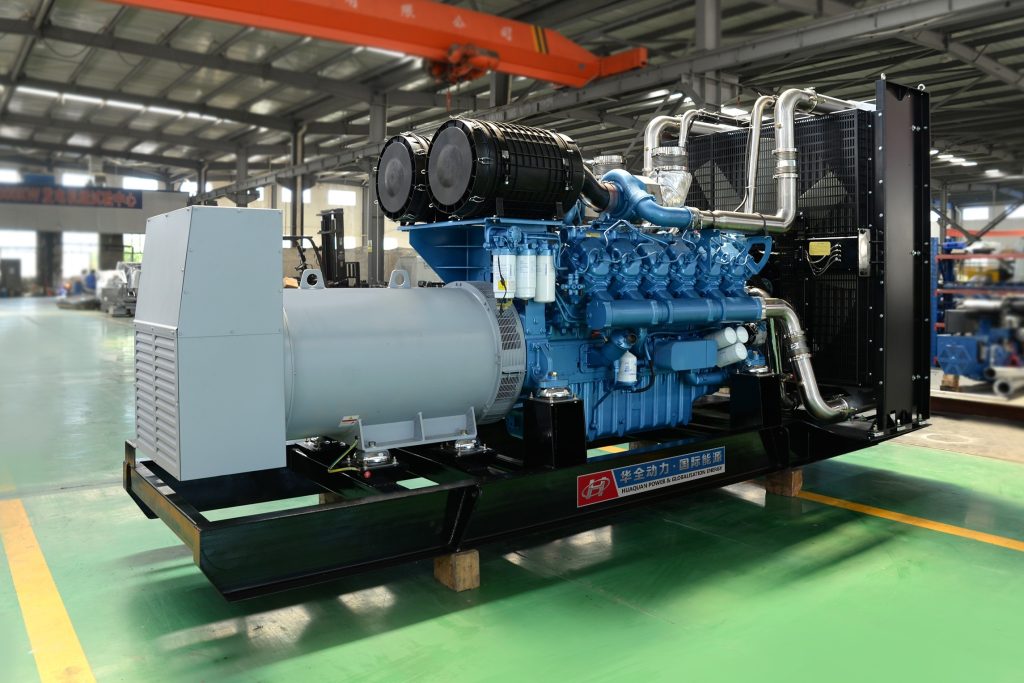Ensuring Regulatory Compliance with Diesel Generators A Comprehensive Guide to Reporting
Introduction: Diesel generators play a crucial role in providing backup power in various industries and settings, ensuring continuity of operations during power outages. However, the use of diesel generators also comes with regulatory requirements that must be adhered to in order to mitigate environmental impacts and ensure public safety. Compliance reporting is a key aspect of managing diesel generator operations, as it helps organizations track and document their adherence to relevant regulations and standards. In this article, we will explore the importance of compliance reporting for diesel generators, the regulatory landscape governing their use, and best practices for ensuring compliance. Regulatory Landscape: The use of diesel generators is subject to a complex web of regulations at the local, state, and federal levels, with the primary aim of minimizing environmental pollution and safeguarding public health. Some of the key regulations that govern the operation of diesel generators include: 1. Clean Air Act: The Clean Air Act (CAA) is a federal law that regulates air emissions from stationary sources, including diesel generators. Under the CAA, diesel generators are required to meet specific emission standards based on their size, type, and usage. Compliance with the CAA often involves regular emissions testing and reporting to demonstrate adherence to the prescribed limits. 2. National Emission Standards for Hazardous Air Pollutants (NESHAP): NESHAP regulations set emission standards for specific hazardous air pollutants emitted by diesel generators. These regulations aim to protect human health and the environment by limiting the release of toxic compounds such as formaldehyde, benzene, and particulate matter. Compliance reporting under NESHAP typically involves tracking emissions, maintenance activities, and other relevant data. 3. State and Local Regulations: In addition to federal regulations, many states and local jurisdictions have their own requirements for diesel generator operation. These regulations may include emission limits, permitting requirements, noise restrictions, and reporting obligations. Organizations that operate diesel generators must be aware of and comply with all relevant state and local regulations to avoid penalties and maintain a good standing in the community. Importance of Compliance Reporting: Compliance reporting plays a critical role in ensuring that diesel generator operators meet their regulatory obligations and demonstrate environmental stewardship. By maintaining accurate records and submitting timely reports, organizations can: 1. Demonstrate Compliance: Compliance reporting provides a documented record of an organization's adherence to regulatory requirements. By tracking emissions, maintenance activities, testing results, and other relevant data, organizations can demonstrate their commitment to environmental protection and public health. 2. Identify Non-Compliance Issues: Regular reporting allows organizations to identify any deviations from regulatory requirements promptly. By monitoring key performance indicators and comparing them to established benchmarks, organizations can pinpoint areas of non-compliance and take corrective actions to address them before they escalate into serious violations. 3. Improve Environmental Performance: Compliance reporting can help organizations track their environmental performance over time and identify opportunities for improvement. By analyzing trends in emissions, energy consumption, and other relevant metrics, organizations can implement measures to reduce their environmental footprint and enhance sustainability. Best Practices for Compliance Reporting: To ensure effective compliance reporting for diesel generators, organizations should follow a set of best practices that promote accuracy, transparency, and accountability. Some of the key best practices include: 1. Establish Clear Reporting Protocols: Organizations should develop clear guidelines and procedures for collecting, recording, and reporting compliance data related to diesel generator operations. This includes defining roles and responsibilities, establishing reporting frequencies, and documenting data sources and methodologies. 2. Use 300kw diesel generator and Measurement Methods: Accurate compliance reporting depends on the use of reliable monitoring and measurement methods to track emissions, fuel consumption, maintenance activities, and other relevant parameters. Organizations should invest in state-of-the-art monitoring equipment and ensure that data collection processes are standardized and consistent. 3. Maintain Detailed Records: Organizations should maintain detailed records of all activities related to diesel generator operations, including maintenance schedules, test results, fuel usage logs, and compliance reports. These records serve as a historical reference for auditing purposes and provide evidence of regulatory compliance. 4. Conduct Regular Audits and Reviews: Periodic audits and reviews of compliance data can help organizations identify gaps, errors, or inconsistencies in their reporting processes. By conducting internal audits and seeking third-party verification, organizations can validate the accuracy and integrity of their compliance reports. 5. Stay Informed of Regulatory Changes: The regulatory landscape governing diesel generator operations is constantly evolving, with new laws, standards, and guidelines being introduced regularly. Organizations must stay informed of these changes and update their compliance reporting practices accordingly to avoid non-compliance issues. Conclusion: Compliance reporting is a fundamental aspect of managing diesel generator operations in a manner that is environmentally responsible and legally compliant. By adhering to regulatory requirements, maintaining accurate records, and following best practices for reporting, organizations can demonstrate their commitment to environmental stewardship and public health. As the regulatory landscape continues to evolve, it is crucial for organizations to stay informed and proactive in their approach to compliance reporting for diesel generators. By prioritizing compliance and transparency, organizations can mitigate risks, enhance operational efficiency, and contribute to a sustainable future. 